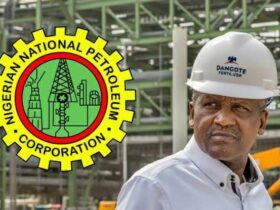
Amidst escalating inflation and foreign exchange challenges, Nigeria’s petroleum industry is in crisis as the cost of petrol trucks skyrockets from N7 million in May to an unprecedented N25 million in December.
Akin Akinrinade, Chairman of the Independent Petroleum Marketers Association of Nigeria in the Satellite Depot branch, warns of industry turmoil, attributing the surge to mishandled foreign exchange rates.
In a recent statement, Akinrinade underscores the crippling impact of inflation on the downstream oil sector, citing a staggering rise in operational expenses.
He identifies the mismanagement of foreign exchange rates as a key factor behind the soaring landing cost of petrol, making business operations unpredictable. High bank lending rates further exacerbate the industry’s financial strain.
He stated, “The forex has been badly managed, and this has impacted the landing cost of PMS (premium motor spirit), also known as petrol, and by extension the pump price.
“The cost of doing business has also gone up astronomically. A truck of petrol that was N7 million in May this year is now N25 million.
“Business is really unpredictable now. Bank lending rate is also very high, contributing to the high cost.”
This turbulence sends shockwaves through Nigeria’s transportation sector, prompting commercial transporters to swiftly raise fares.
READ ALSO: Why Foreign Airlines May Exit Nigerian Aviation Market – IATA
A Nairametrics review of road transportation fares between Abuja and Benin City and Abuja and Lagos reveals prices ranging from N20,000 to N27,000, depending on the transporting company.
Private car owners in Abuja are responding by purchasing fuel-saving liquids at petrol stations to mitigate rising fuel costs, especially those who commute daily.
With Christmas holidays approaching, costs are anticipated to surge further due to increased demand for interstate travel.
Meanwhile, despite the economic challenges, many Nigerians are not experiencing higher earnings compared to more favorable macroeconomic conditions.








Leave a Reply